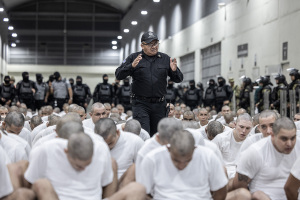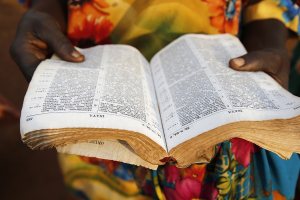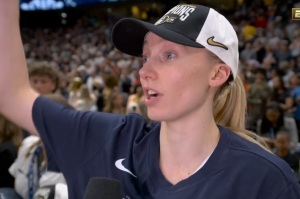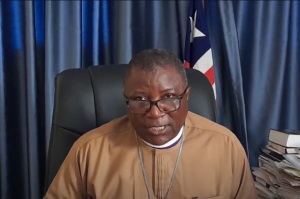How Far Does Academic Freedom Extend in Christian Schools?
''In a sense it's ironic because Christian college by definition limits itself, but in one sense, it has more freedom to issue'' -- Norris Friesen, academic dean of Huntington University
How far does academic freedom extend for professors and lecturers in Christian universities?
According to Norris Friesen, academic dean of Huntington University, a Christian liberal arts institution based in Huntington, Ind., this is one of the biggest issues faced by seminaries and Christian schools today.
“One of the issues faced by many institutions is: do you permit faculty members to teach something that has a different opinion and how does the college respond to the issue,” said Friesen.
The issue concerning academic freedom within American institutions surfaced at Huntington early this year when one of its professors was dismissed for his view on the nature of God.
A popular religion and philosophy teacher, Dr. John Sanders, was rejected for supporting a controversial theological model called “Open theism” – the idea that the future is open as far as it is not decided yet what is going to happen.
This theological viewpoint has sparked an ongoing controversial debate since 1994, when Protestant Evangelical scholars, including Sanders, published five essays under the title: "The Openness of God."
“Open theism (OT) is a fresh branch on the tree of Free will theism,” explained Dr. Clark Pinnock, Professor Emeritus of Systematic Theology at McMaster Divinity College in Hamilton, Ontario. “It’s a theological model which takes a libertarian stance on freedom.”
The OT model stems from the classical Free will theism, which professes that human beings have free will to make choices to determine events.
However, there is an “added feature” to OT that sets it apart from the traditional model. Advocates believe that although God knows what happened in the past and what is currently happening, He possesses no foreknowledge of events because the future has not yet happened.
Standing at the other end of the debate is Calvinism, which opposes the "libertarian freedom" philosophy.
“Freedom for Calvinists is the ability to do what one wants most to do apart from constraint or coercion,” said Dr. Bruce A. Ware, Professor of Christian Theology at Southern Baptist Theological Seminary (SBTS). “Freedom as in Calvinistic understanding is not the same as it is understood in the free will theist tradition.”
However, Calvinists also believe that God gives them the desire to do the right thing, therefore, ultimately God is in control of everything.
“The Calvinism view is God is in control of everything that happens in the universe including human actions and decisions and He exercises in a way in which no creatures are feel freed,” said Ware, who has written a number of books refuting the open theism stance. “It’s that God can control what happens, what free creatures decide.”
According to Friesen, Sanders’ pro-open theism position became “the rub or the issue” in terms of whether this teaching is outside of the belief or understanding of the United Brethren Church - the denomination that is affiliated with the school.
“He had no responsibility to teach this material in class and he was very guarded in that they [students] would adopt his position and he was very fair in presenting his material. He was not biased,” said Friesen.
Although Sanders was not teaching directly on this topic, Friesen said that they [the Board members] felt he would attract students to this philosophy.
“I think, in my personal opinion, that many colleges may identify this as concern. It is an issue that a lot of college struggle with,” said Friesen. “In a sense it's ironic because Christian college by definition limits itself, but in one sense, it has more freedom to issue.”





























